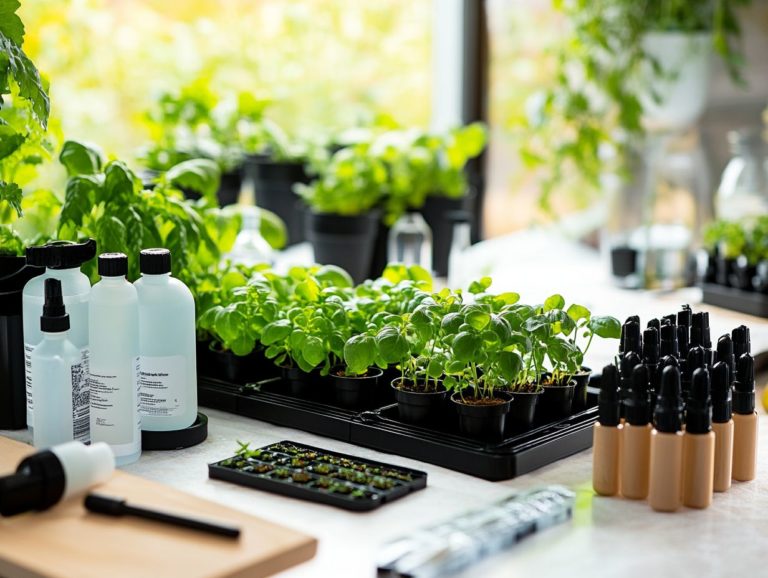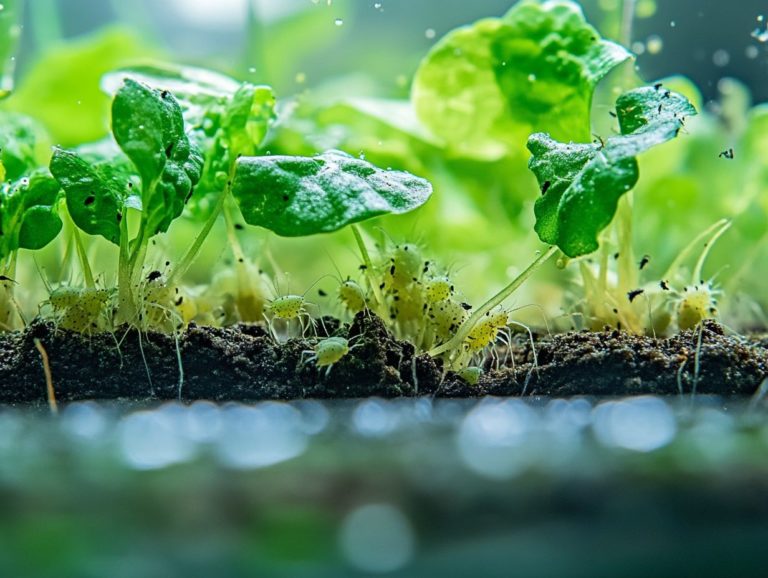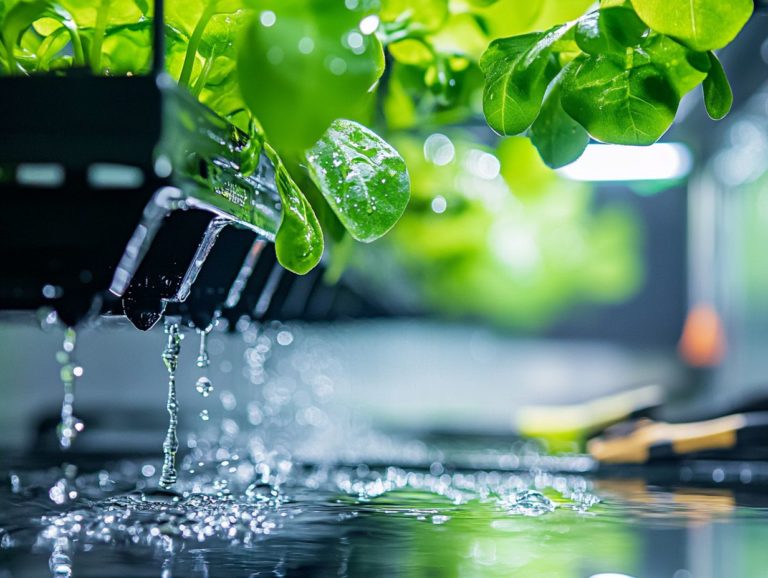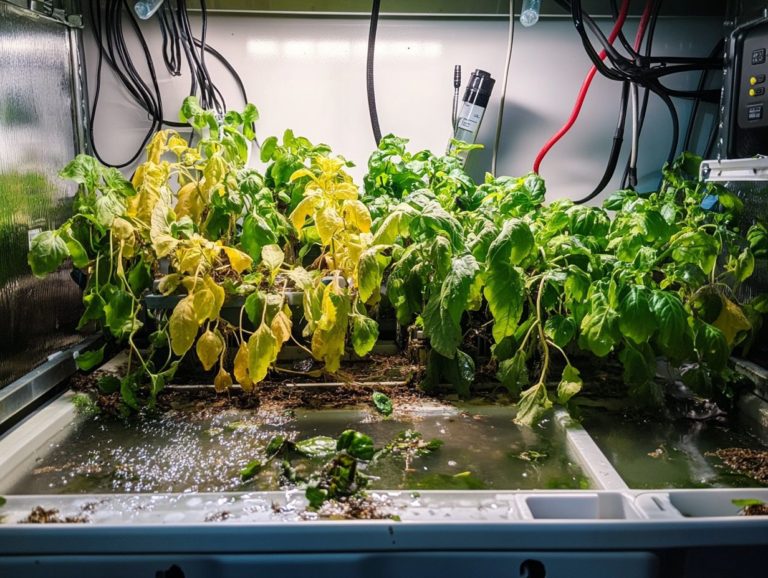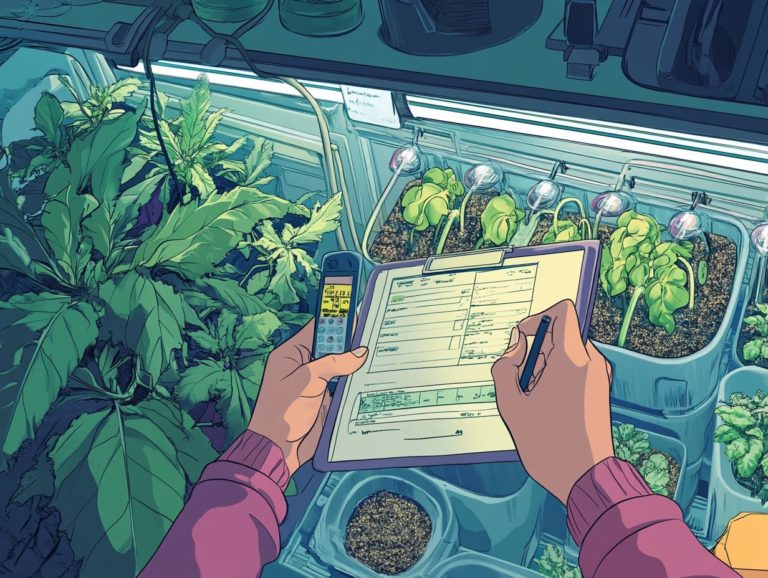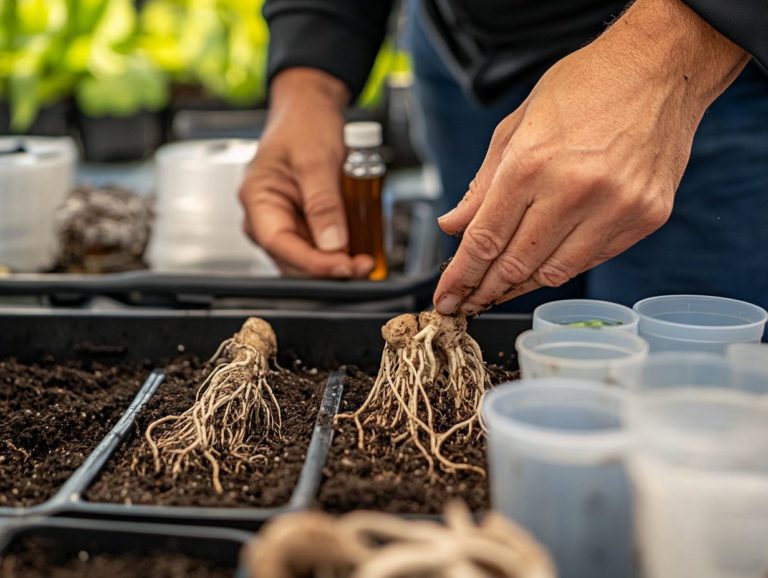Troubleshooting pH Levels in Hydroponic Gardens
Maintaining the right pH levels in your hydroponic garden is essential for fostering healthy plant growth. pH balancing is a key factor to consider.
Given the unique challenges of soilless cultivation, understanding pH is crucial for ensuring optimal nutrient availability. This article explains what pH is and why it matters for plant growth. We ll also cover common nutrient imbalances you might encounter and practical solutions to fix them.
Discover various tools for measuring pH, such as electronic pH meters and pH kits. Gather insights on maintaining pH stability in your hydroponic system. Dive in and cultivate thriving plants with confidence!
Contents
- Key Takeaways:
- The Importance of pH Levels in Hydroponic Gardens
- Common pH Problems in Hydroponic Gardens
- Tools for Measuring pH in Hydroponic Gardens
- Adjusting pH Levels in Hydroponic Gardens
- Maintaining pH Balance in Hydroponic Gardens
- Frequently Asked Questions
- Why is it important to troubleshoot pH levels in hydroponic gardens?
- What is the ideal pH range for hydroponic gardens?
- What are some common causes of pH level imbalances in hydroponic gardens?
- How can I troubleshoot high pH levels in my hydroponic garden?
- What should I do if I have low pH levels in my hydroponic garden?
- How often should I check and adjust pH levels in my hydroponic garden?
Key Takeaways:
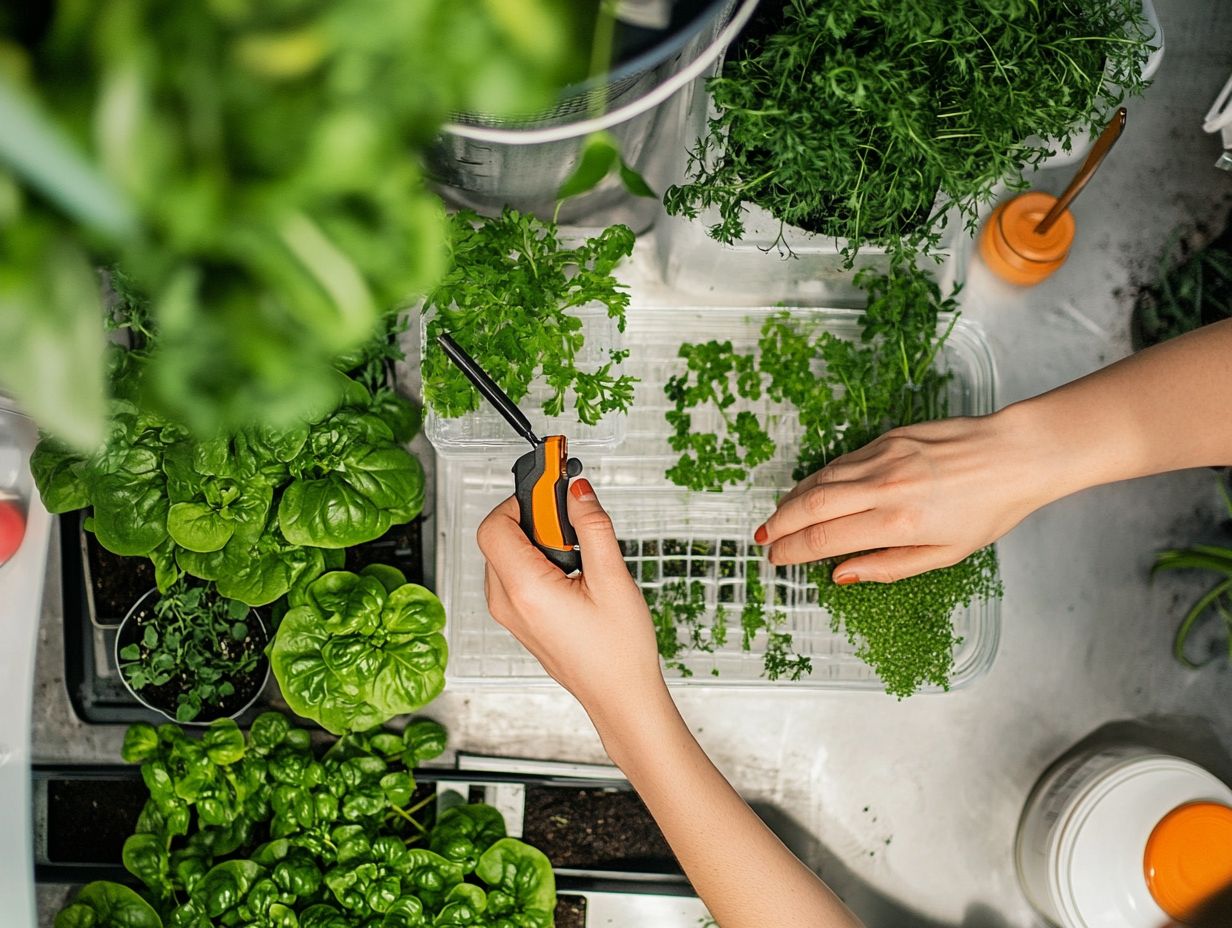
- Maintaining the proper pH level is crucial for a successful hydroponic garden.
- Identify and address pH imbalances early on to prevent plant damage and stunted growth.
- Regularly test and adjust pH levels with appropriate tools and methods to keep your garden healthy and thriving.
The Importance of pH Levels in Hydroponic Gardens
Understanding pH levels in your hydroponic garden is essential for achieving optimal plant health and ensuring nutrient availability. pH measures how acidic or alkaline a solution is and directly impacts nutrient uptake and overall plant vitality.
In hydroponic systems, maintaining the correct pH range is critical for ensuring that all essential nutrients are accessible to your plants at every growth stage. An imbalance can lead to deficiencies or toxicities, ultimately stunting the productivity of your garden.
Regularly measuring and adjusting pH levels is crucial for thriving plants!
What is pH and Why is it Important?
pH, or potential of Hydrogen, is a crucial metric that measures the acidity or alkalinity of your nutrient solution, directly impacting plant health in hydroponic systems. The pH level plays a significant role in nutrient availability, as various nutrients are best absorbed at specific pH levels.
By maintaining the optimal pH, you ensure that essential macronutrients like nitrogen, phosphorus, and potassium, along with vital micronutrients, remain accessible to your growing plants. This stability fosters vigorous growth and robust yields.
A slight deviation from the ideal pH range can lead to nutrient lockout, making it hard for your plants to absorb necessary elements. This can result in deficiencies that stunt their growth and diminish overall yield. For example, an overly acidic solution can impede the uptake of calcium and magnesium, while alkaline conditions may hinder the absorption of iron and manganese.
This highlights the importance of regularly monitoring and adjusting pH levels in your hydroponic systems. Doing so ensures that your plants receive the balanced nutrition they need throughout every stage of their growth cycle. Ultimately, diligent pH management not only promotes healthier plants but also enhances the efficiency of your entire hydroponic setup.
Common pH Problems in Hydroponic Gardens
Common pH challenges in hydroponic gardens typically arise from fluctuations that can disrupt nutrient balance and lead to deficiencies. These fluctuations may be influenced by several factors, such as variations in water quality, nutrient concentrations, or the addition of buffering agents.
When the pH strays from its optimal range, it can severely impede nutrient uptake and adversely affect plant health. This makes it crucial for you to troubleshoot pH issues to keep your hydroponic system flourishing. By identifying these common problems, you can take timely corrective measures to ensure the vitality of your garden.
Identifying and Addressing Imbalances
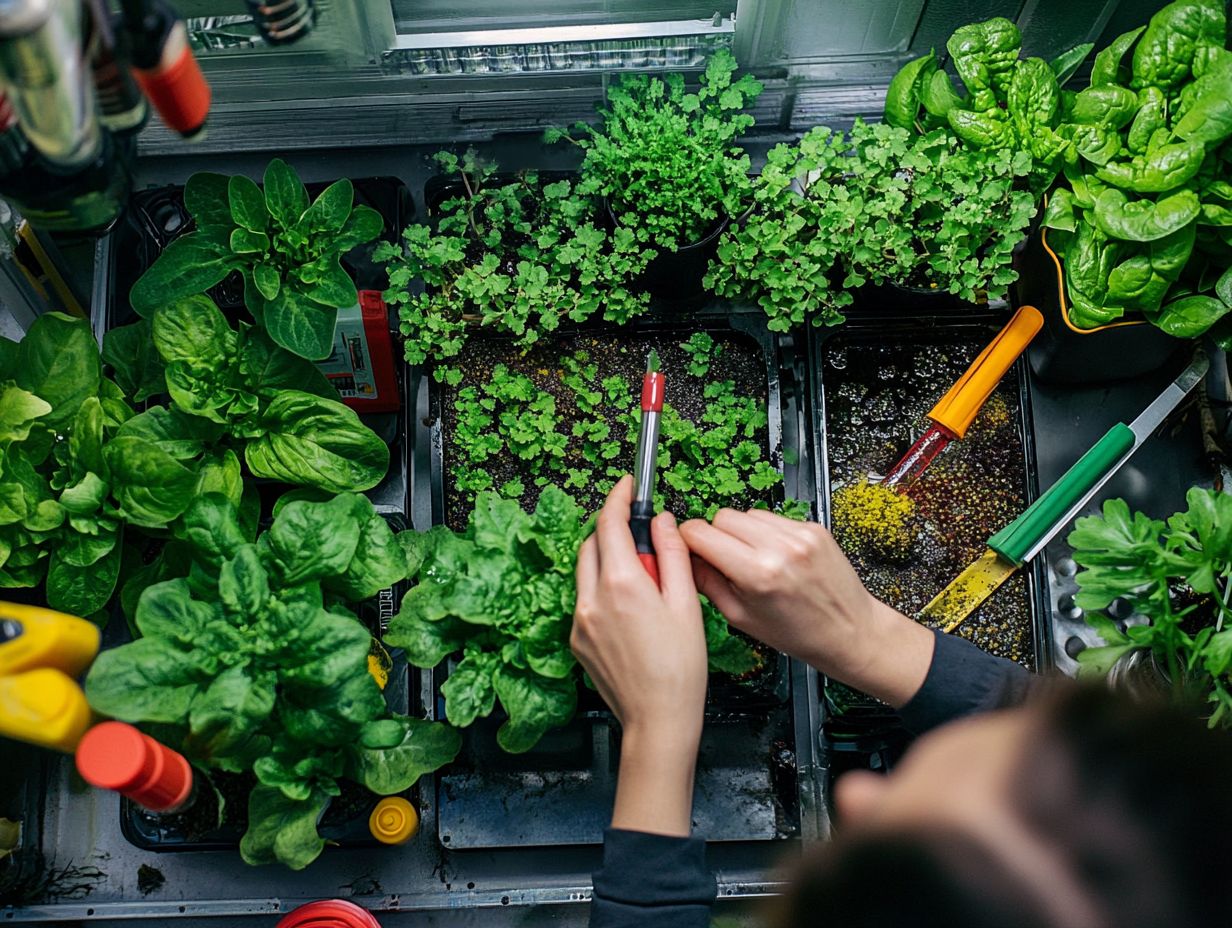
Identifying and addressing pH imbalances in your hydroponic garden is crucial for ensuring the best nutrients for your plants and promoting plant health. Regularly measuring pH can reveal fluctuations that may lead to nutrient imbalances, ultimately impacting the overall well-being of your plants.
By employing exciting pH testing methods, such as electronic meters or liquid tests, you can easily monitor and adjust pH levels. Solutions like pH up and pH down are readily available to help restore balance in your nutrient solution.
You must monitor these levels. Neglecting this aspect can result in stunted growth or yellowing leaves, which are signs of nutrient lockout caused by improper pH. Test your nutrient solutions regularly, especially before and after adding nutrients, and conduct weekly assessments.
Adjusting pH not only enhances nutrient uptake but also boosts the overall vitality and yield of your plants, ultimately contributing to robust growth.
This careful approach to pH management helps you grow a healthy and productive hydroponic garden.
Tools for Measuring pH in Hydroponic Gardens
Tools for measuring pH in hydroponic gardens are essential for maintaining the health and productivity of your plants, as precise pH measurements ensure optimal nutrient availability. You ll find a variety of tools at your disposal, including electronic pH meters, pH kits, and liquid pH tests, all popular among hydroponic gardeners.
Each tool has its own advantages in terms of accuracy, ease of use, and measurement speed. By choosing the right tools for pH testing, you can effectively manage your nutrient solutions and tackle potential imbalances before they affect your plants health.
Types of pH Testers and Their Uses
There are several types of pH testers available for hydroponic gardeners, each designed to meet specific needs in pH measurement. Among these, electronic pH meters truly shine with their precision. The digital displays provide instant readings, ensuring that your nutrient solutions stay within the optimal range for plant growth. With advanced sensors that detect the amount of hydrogen ions in the solution, these meters are perfect for those who need to test frequently and reliably.
If you re just starting your gardening journey, pH kits can be a great choice. They typically include color-changing indicators that you match against a provided scale. While they may lack the precision of digital meters, they are incredibly user-friendly and require minimal investment perfect for beginners.
Liquid pH tests offer a balance of simplicity and effectiveness, giving you quick visual results without the fuss. Understanding the nuances of these pH measurement tools is essential for maintaining a thriving hydroponic garden. It plays a crucial role in achieving healthy plant development and maximizing your yields.
Adjusting pH Levels in Hydroponic Gardens
Adjusting pH levels in your hydroponic garden is essential for preventing nutrient imbalances and ensuring your plants receive the vital nutrients they need for robust growth. When the pH strays from the optimal range, you can add alkaline additives like calcium carbonate or potassium bicarbonate to raise the pH. Conversely, organic acids such as citric acid or vinegar can effectively lower it.
By regularly monitoring and making timely adjustments to your nutrient solution, you can avert complications arising from pH fluctuations, ultimately optimizing the health of your plants and maximizing your yield.
Methods for Correcting Imbalances
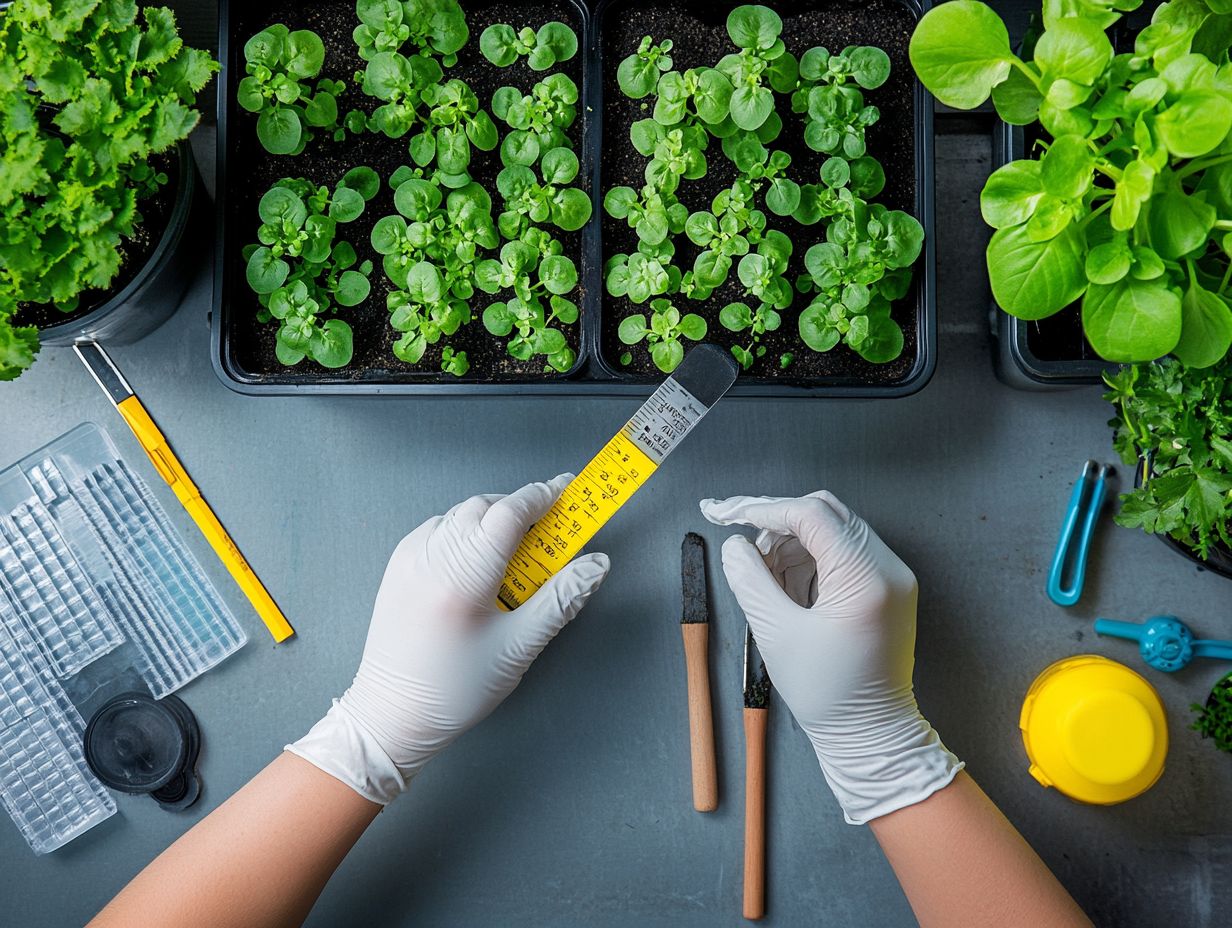
Correcting pH imbalances in your hydroponic garden requires a thoughtful approach. You ll often turn to pH up and pH down solutions to bring the pH back to its optimal range, especially when adjusting those levels to meet the needs of your nutrient solution. To troubleshoot any pH issues, regular testing of your nutrient solution for pH drift is essential. Making timely adjustments will help maintain stability and enhance the health of your plants.
To tackle those pH imbalances like a pro, start by selecting a reliable pH testing kit that allows you to assess your current levels with precision. Once you have your readings, you can use pH adjustment solutions to correct any differences. You definitely want to introduce these solutions gradually, giving time for mixed reactions and re-testing. This ensures you stay within the desirable range of 5.5 to 6.5 for most hydroponic crops. For more detailed information, check out this guide on understanding pH levels in hydroponic nutrients.
By integrating a regular monitoring schedule into your routine, you can anticipate potential issues before they disrupt plant growth. This will ultimately foster a healthy environment that promotes optimal yields!
Maintaining pH Balance in Hydroponic Gardens
Maintaining pH balance in your hydroponic garden is crucial for ensuring the long-term health and productivity of your plants. Stable pH levels promote optimal nutrient availability, which is key to their growth and overall well-being in hydroponic systems.
You can achieve this by regularly monitoring water quality and nutrient concentrations. Incorporating buffering agents substances that help maintain stable pH levels into your nutrient solution can also prevent sudden pH fluctuations. By addressing the factors that can lead to pH imbalances in advance, you can cultivate a thriving environment for your plants, reducing the need for constant adjustments.
Tips for Preventing Imbalances
Preventing pH imbalances in your hydroponic garden requires a blend of strategies focused on maintaining water quality and nutrient concentrations. Regularly testing your nutrient solution for pH stability is crucial! This ensures your plants receive the necessary nutrients without risking deficiencies or toxicities. By choosing high-quality water and closely monitoring environmental factors, you can further reduce the chances of pH fluctuations, promoting lasting plant health and growth.
One effective approach is to invest in reliable pH testing kits that offer real-time insights into your water quality. You definitely want to test the pH at least once a week, especially during those critical growth phases. Keeping a consistent temperature and humidity can also significantly impact pH levels, so staying vigilant about these environmental variables is essential!
When it comes time to adjust pH, using specialized solutions designed specifically for hydroponics will help you achieve stability without introducing harmful substances. Regularly flush your system with clean water to prevent harmful build-ups and maintain balanced nutrient concentrations, ultimately supporting the overall well-being of your plants.
Frequently Asked Questions
Why is it important to troubleshoot pH levels in hydroponic gardens?
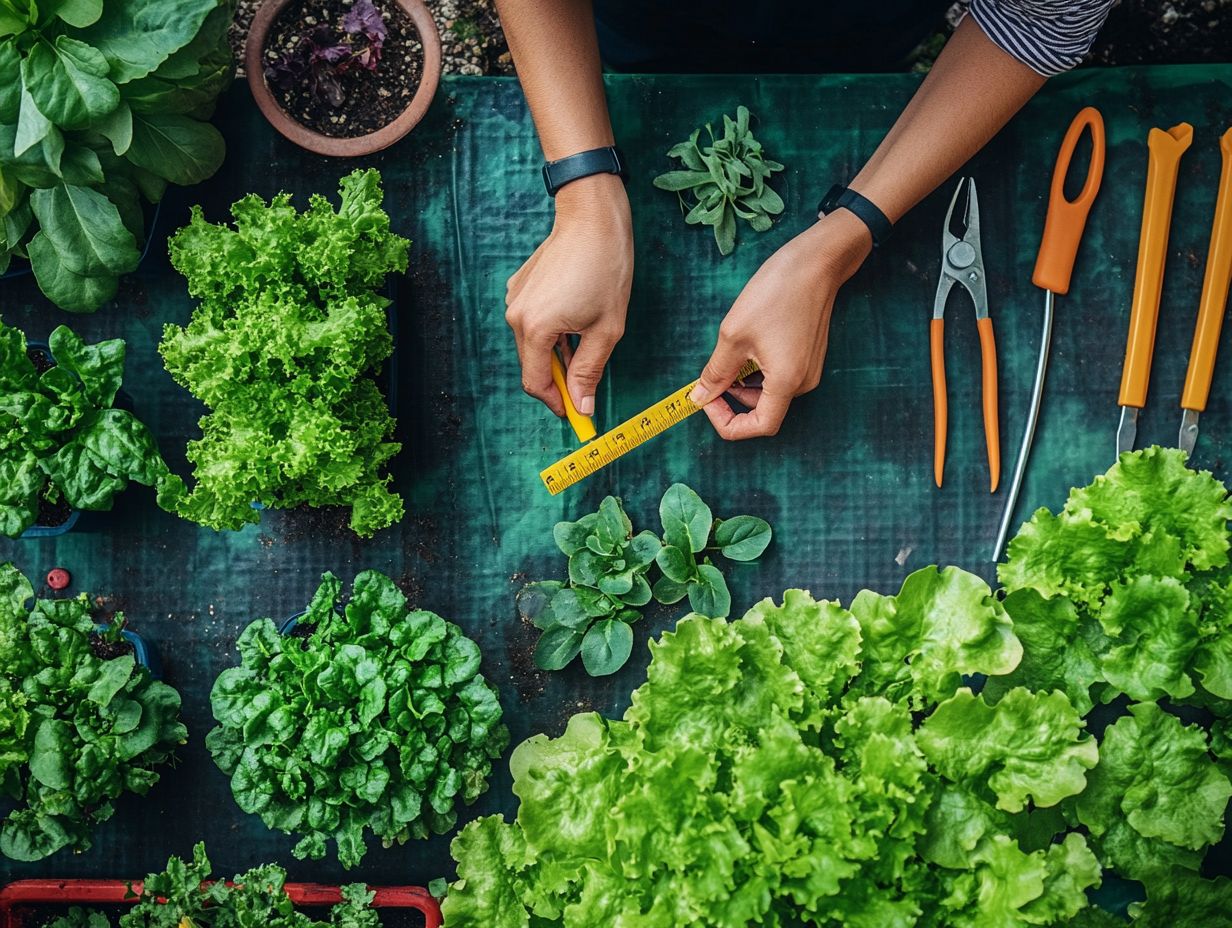
Regularly checking and adjusting pH levels in hydroponic gardens is crucial. The pH of the nutrient solution affects nutrient absorption by plant roots, directly impacting growth and yield.
Understanding nutrient requirements and macronutrients essential nutrients needed in larger amounts, like nitrogen, phosphorus, and potassium is vital for optimizing nutrient uptake.
What is the ideal pH range for hydroponic gardens?
The ideal pH range for hydroponic gardens is 5.5 to 6.5. This slightly acidic level optimizes nutrient uptake.
What are some common causes of pH level imbalances in hydroponic gardens?
pH level imbalances in hydroponic gardens may result from factors like tap water with high mineral content, nutrient solutions with incorrect pH levels, or the buildup of algae and other microorganisms.
How can I troubleshoot high pH levels in my hydroponic garden?
If you have high pH levels, use a substance to lower pH, such as citric acid or white vinegar. You can also dilute the nutrient solution with distilled water or install a reverse osmosis filtration system for your water source.
What should I do if I have low pH levels in my hydroponic garden?
If your pH levels are low, raise them using a substance to raise pH, like potassium hydroxide or baking soda. Adding dolomite lime or crushed oyster shells to your growing medium can also help buffer the pH levels.
How often should I check and adjust pH levels in my hydroponic garden?
Check and adjust pH levels in your hydroponic garden at least once a week! This is vital for your plants health and growth. Monitor regularly to maintain proper pH levels for a successful hydroponic garden.

